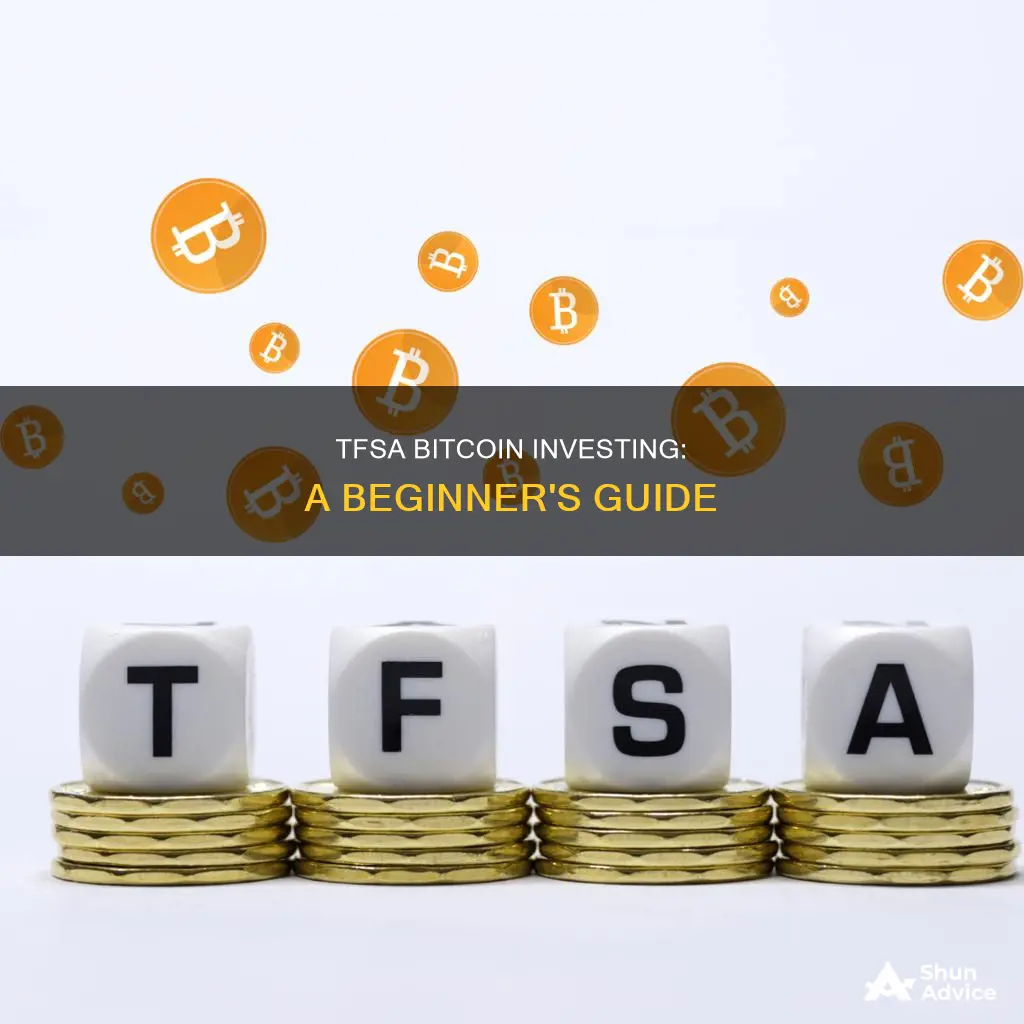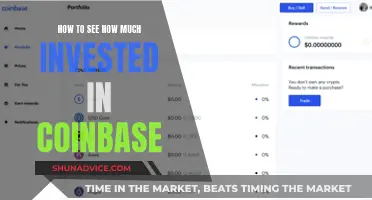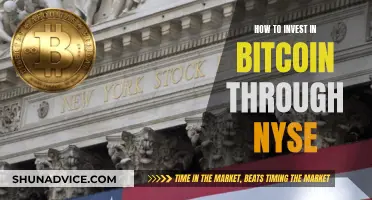
Investing in Bitcoin in a TFSA (Tax-Free Savings Account) is a hot topic, especially with the cryptocurrency's massive run-up in 2017 and its increasing acceptance as a serious investment vehicle. While it is not possible to buy Bitcoin directly in a TFSA, you can gain exposure to Bitcoin and the cryptocurrency market in other ways. One popular method is through Exchange-Traded Funds (ETFs) that invest in Bitcoin, such as the Purpose Bitcoin ETF (BTCC) or The Bitcoin Fund (QBTC). These ETFs allow you to invest in Bitcoin without the hassle of using a cryptocurrency exchange platform. Additionally, you can consider investing in Bitcoin mining companies like BitFarms (BITF) or HIVE Blockchain Technologies (HIVE), which offer leveraged exposure to Bitcoin's price movements. However, it's important to remember that investing in Bitcoin and cryptocurrencies carries significant risks due to their high volatility. Before investing, ensure you understand the basics of the market and proceed with caution.
| Characteristics | Values |
|---|---|
| Can you hold Bitcoin in a TFSA? | Yes, but not directly. You can buy Exchange-Traded Funds (ETFs) that invest in Bitcoin. |
| How to buy Bitcoin in a TFSA | You need a TFSA brokerage account to access the stock market. Wealthsimple Trade and Questrade are recommended for their low-commission trading platforms. |
| Tax implications of holding Bitcoin in a TFSA | All capital gains are tax-free in a TFSA. |
| Risks of buying Bitcoin in a TFSA | Cryptocurrency is a high-risk, speculative, and incredibly volatile asset. If Bitcoin goes to zero, there is no protection for investors. |
What You'll Learn

How to buy Bitcoin in your TFSA and RRSP
While it is possible to hold Bitcoin in a TFSA or RRSP, it is not possible to buy it directly. Cryptocurrency is not yet mainstream enough to be able to purchase it directly in your brokerage account. However, you can buy Exchange-Traded Funds (ETFs) that invest in Bitcoin.
The Purpose Bitcoin ETF
The Purpose Bitcoin ETF is the first ETF in the world to be physically backed by Bitcoin, not derivatives. It is provided by Purpose Investments and trades on the Toronto Stock Exchange (TSX) under the ticket BTCC. The ETF has a management fee of 1%.
The Bitcoin Fund
The Bitcoin Fund (TSX:QBTC) is designed as an exchange-traded fund (ETF). Each unit of the fund represents 0.001116 BTC.
BitFarms
BitFarms is a Bitcoin-mining company. This makes the stock highly leveraged to Bitcoin. So, as the price of the digital currency increases, BitFarms’s profit margins will expand rapidly.
HIVE Blockchain Technologies
HIVE Blockchain Technologies (TSXV:HIVE) owns and operates server farms that generate new BTC. Part of these freshly created digital assets are sold to fund expansion, while the rest are held in reserve.
Wealthsimple Trade and Questrade
Both Wealthsimple Trade and Questrade are online brokerages that make it free to buy ETFs, so you’ll pay no trading commissions to get started.
3IQ's QBTC
You can open a self-directed investment account through any major bank or investment service. Create an RRSP or TFSA within that account and then transfer your existing RRSP/TFSA to that account. From there, purchase shares of QBTC.
Cryptocurrency Investment: Safe or Risky Business?
You may want to see also

The risks of buying Bitcoin in your TFSA or RRSP
Although investing in Bitcoin in your TFSA or RRSP has its benefits, there are some serious downsides to this strategy. Here are some of the risks you should consider before investing in Bitcoin through these accounts:
High Risk and Volatility
Cryptocurrency, including Bitcoin, is a high-risk and speculative investment. It is subject to significant price volatility and can rapidly decline in value. If Bitcoin's value drops to zero, investors could lose their entire investment with no protection or recourse.
Impact on Contribution Room
Capital losses in registered accounts like the RRSP or TFSA can impact the contribution room. If your Bitcoin investment performs poorly, the money lost is gone forever, and you won't recoup the contribution room the following year.
Limited Diversification with Bitcoin ETFs
Exchange-Traded Funds (ETFs) typically provide diversification by investing in multiple assets. However, the Bitcoin ETF (BTCC) is only invested in a single asset: Bitcoin. This means that if Bitcoin's value decreases, the value of the ETF will also decrease. Therefore, investing in BTCC should be treated similarly to investing in a single stock.
Trading Restrictions
It's important to note that Bitcoin ETFs, like BTCC, can only be traded during market hours. In contrast, the cryptocurrency market operates 24/7, and significant price fluctuations can occur outside of regular market hours. This limitation can be restrictive for investors looking to actively trade Bitcoin.
Fluctuations in Currency Exchange Rates
Some Bitcoin ETFs, like BTCX.B and BTCC.B, are not currency-hedged. This means that fluctuations in the exchange rate between the Canadian dollar and the US dollar can introduce additional volatility and impact your returns in the short term.
Regulatory and Security Concerns
The cryptocurrency market is subject to regulatory ambiguity, and the lack of government regulation can be a concern for investors. Additionally, crypto exchanges and wallets are vulnerable to hackers, posing a risk to your investment.
How to Invest in Dogecoin: A Beginner's Guide
You may want to see also

How to buy Bitcoin in a TFSA
Investing in Bitcoin through a Tax-Free Savings Account (TFSA) is possible, but not directly. Bitcoin is a cryptocurrency, and these are not yet recognised as legitimate currencies by traditional banks and brokerages.
However, there are a few ways to gain exposure to Bitcoin in your TFSA.
Exchange-Traded Funds (ETFs)
One way to invest in Bitcoin through your TFSA is to buy an Exchange-Traded Fund (ETF) that invests in Bitcoin. ETFs are investment securities that trade on the market exchange like a single stock. Typically, they invest in multiple assets, but a Bitcoin ETF only holds Bitcoin.
The first Bitcoin ETF in Canada was the Purpose Bitcoin ETF (or Prosper Investments Bitcoin ETF) which trades on the Toronto Stock Exchange under the ticket BTCC. This ETF has a management fee of 1%.
Another ETF option is The Bitcoin Fund (TSX:QBTC), which is designed as an exchange-traded fund. Each unit of the fund represents 0.001116 BTC.
Bitcoin Mining Stocks
An alternative way to gain exposure to Bitcoin through your TFSA is to invest in Bitcoin mining stocks. These are companies that own and operate server farms that generate new Bitcoins.
One example is HIVE Blockchain Technologies (TSXV:HIVE), which mines Bitcoin and other major cryptocurrencies. At the time of writing, HIVE has Bitcoin reserves worth millions of dollars.
Another option is BitFarms (TSXV:BITF). This stock is highly leveraged to Bitcoin, so as the price of the cryptocurrency increases, BitFarms' profit margins expand rapidly.
How to Buy
To buy a Bitcoin ETF in your TFSA, you will need a TFSA brokerage account. Wealthsimple Trade and Questrade are two online brokerages that make it free to buy ETFs in Canada.
Bitcoin: Worth the Investment Risk?
You may want to see also

The Purpose Bitcoin ETF
The ETF provides exposure to Bitcoin by investing directly in "physical/digital Bitcoin". It is available in both Canadian and US dollar units. The fund is issued by Purpose Investments Inc. and can be purchased through online trading platforms such as Wealthsimple Trade and Questrade.
While investing in Bitcoin through the ETF offers certain benefits, it is important to remember that Bitcoin is a highly volatile and speculative asset. Investors should carefully consider their risk tolerance and conduct thorough research before investing.
Building Bitcoin City: A Guide to Investing
You may want to see also

Bitcoin and taxes
The IRS treats cryptocurrencies like Bitcoin as property, which means that sales are subject to capital gains tax rules. This means that if you make a profit on a cryptocurrency transaction and don't report the income, you could find yourself in trouble with the IRS.
When you sell, exchange, or dispose of a digital asset for a profit, this is considered a capital gain. The profit is calculated by taking the difference between the fair market value of the goods or services you received and your adjusted cost basis (the amount you paid for your cryptocurrency plus any fees).
Yes, if you are based in the US and you make a profit on a Bitcoin transaction, you will have to pay capital gains tax. It is your responsibility to report all transactions to the IRS, and you will not receive a Form 1099 from the currency exchange. It is up to you to keep receipts and confirmations for every purchase and sale.
Not every crypto transaction is taxable. The following activities are not considered taxable events:
- Buying digital assets with cash
- Transferring digital assets between wallets or accounts that you control
- Gifting cryptocurrency (excluding large gifts that could trigger other tax obligations)
- Donating cryptocurrency (which is tax-deductible)
If you make a loss on a Bitcoin transaction, you can use this to offset capital gains or taxable income in the same calendar year. You can also deduct this from your ordinary income, up to $3,000 per year.
You must report all digital asset transactions on your tax return, whether or not they result in a taxable gain or loss. You will need to fill out Form 8949, Sales and Other Dispositions of Capital Assets, and Form 1040, Individual Income Tax Return.
If you don't report your Bitcoin transactions and the IRS finds out, you could be audited and face penalties on top of whatever additional tax you owe. Underreporting income is considered tax evasion, so it is important to take this seriously and work with a tax advisor if you are unsure.
The Pros and Cons of Bitcoin Investments
You may want to see also
Frequently asked questions
Yes, it is possible to hold Bitcoin in a TFSA. You can buy Exchange-Traded Funds (ETFs) that invest in Bitcoin.
You can buy shares in BTCC wherever you access the stock market. You can use an online brokerage platform such as Wealthsimple Trade or Questrade to buy ETFs without paying trading commissions.
Cryptocurrency is a high-risk, speculative, and volatile asset. If Bitcoin's value falls to zero, investors will lose their money. Capital losses in registered accounts like the TFSA can impact contribution room.







